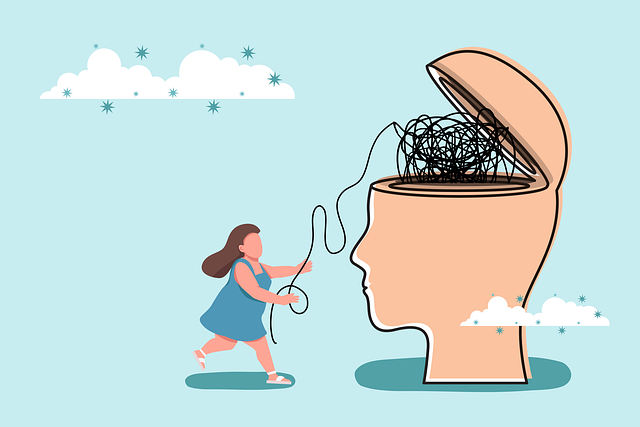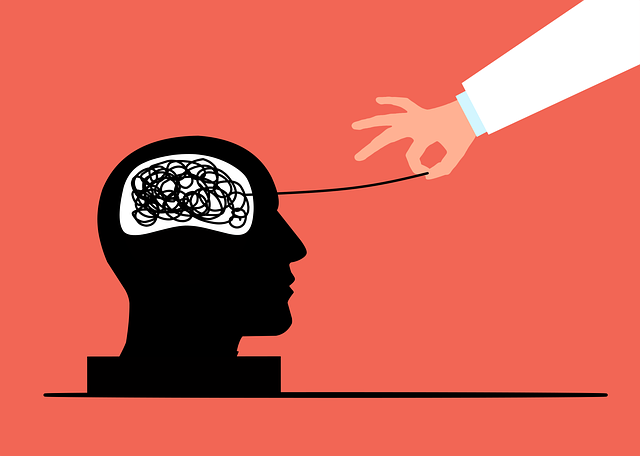Understanding Mood Regulation for Elders emphasizes the importance of emotional well-being in aging populations, highlighting challenges such as physical health issues, social isolation, and cognitive changes. Effective strategies like play therapy and compassion cultivation practices offer safe spaces for expression and exploration, helping seniors reconnect with their emotions, develop healthier coping mechanisms, and achieve a deeper sense of self-awareness. Combining cognitive-behavioral therapy (CBT) with play therapy significantly improves mental health and fosters a more fulfilling life among older adults by encouraging creative expression and empathy.
Mood regulation is a critical aspect of overall well-being, especially for aging populations. This article explores various strategies to help elders navigate and manage their moods effectively. We delve into the unique benefits of play therapy as an innovative tool to foster emotional management in older adults. Additionally, we provide practical strategies that can enhance emotional resilience, offering valuable insights for caregivers and healthcare professionals. Discover how these techniques can significantly improve the quality of life for our aging loved ones.
- Understanding Mood Regulation for Elders
- Play Therapy as a Tool for Emotion Management in Older Adults
- Effective Strategies to Enhance Emotional Well-being
Understanding Mood Regulation for Elders

Understanding Mood Regulation for Elders
Mood regulation is a vital aspect of mental health awareness, especially among elders. As people age, they may face unique challenges that impact their emotional well-being, such as physical health issues, social isolation, or cognitive changes. Therefore, it’s crucial to explore effective strategies tailored to this demographic. Play therapy and other compassionate cultivation practices can offer a game-changer for elders seeking to enhance their mood regulation abilities. These approaches provide a safe space for expression and exploration, allowing individuals to reconnect with their emotions and develop healthier coping mechanisms.
In the world of elder care, incorporating stress reduction methods becomes essential. Many older adults have lived through significant life events, and managing stress can help them navigate through challenging times. Through play therapy sessions or mindfulness practices, compassion cultivation can be fostered, enabling elders to cultivate a deeper sense of self-awareness and emotional balance. By combining these therapeutic approaches, professionals can assist elders in navigating their emotions, improving overall mental health, and fostering a more fulfilling life.
Play Therapy as a Tool for Emotion Management in Older Adults

Play therapy offers a unique and innovative approach to mood regulation for older adults, focusing on the power of play as a therapeutic tool to help manage emotions. This method recognizes that play is not solely for children but can be a powerful means of self-expression and emotional healing processes for seniors as well. Through engaging in imaginative play, older individuals can explore and process their feelings, memories, and experiences in a safe and non-threatening manner.
The therapy encourages the use of creative expression, make-believe scenarios, and symbolic play to help clients resolve conflicts and cultivate compassion within themselves and others. By tapping into their inner child, elders can relive and reframe past traumatic events, release pent-up emotions, and develop effective conflict resolution techniques. Play therapy also fosters a sense of joy and wonder, providing an outlet for positive emotional expression and enhancing overall well-being.
Effective Strategies to Enhance Emotional Well-being

Maintaining emotional well-being is a crucial aspect of overall health, especially for elders navigating the complexities of aging. Effective strategies to enhance emotional well-being involve a combination of therapy and play therapy tailored to individual needs. Therapy for elders can include cognitive-behavioral therapy (CBT), which helps identify and change negative thought patterns contributing to emotional distress. By addressing these patterns through conversation and practical techniques, CBT promotes improved emotional regulation.
Additionally, play therapy offers a unique approach to fostering emotional well-being in both children and adults. Through creative expression, such as art, music, or storytelling, individuals can explore and process their emotions in a safe, non-verbal manner. This facilitates empathy building strategies that enhance understanding of one’s feelings and those of others, ultimately contributing to better emotional well-being promotion techniques.
In conclusion, understanding and regulating moods is crucial for maintaining emotional well-being in older adults. Integrating play therapy as a complementary approach alongside effective strategies can significantly enhance their ability to manage emotions. By recognizing the unique needs of elders and employing tailored methods, we can foster resilience and improve overall mental health in this demographic, ensuring they lead vibrant and fulfilling lives. Play therapy for elders, as a specialized intervention, holds promise in nurturing emotional balance and addressing the complex challenges that arise with aging.














